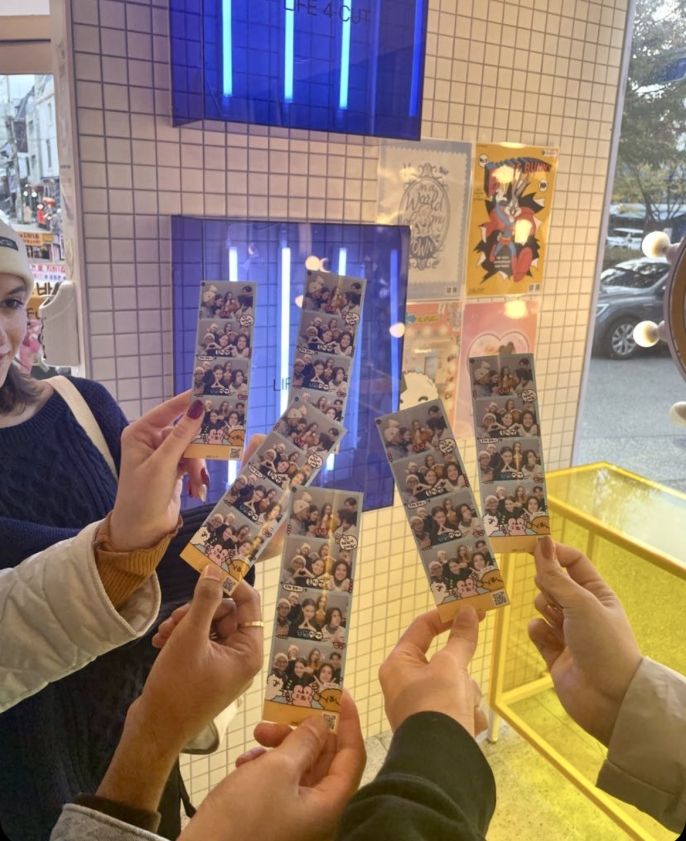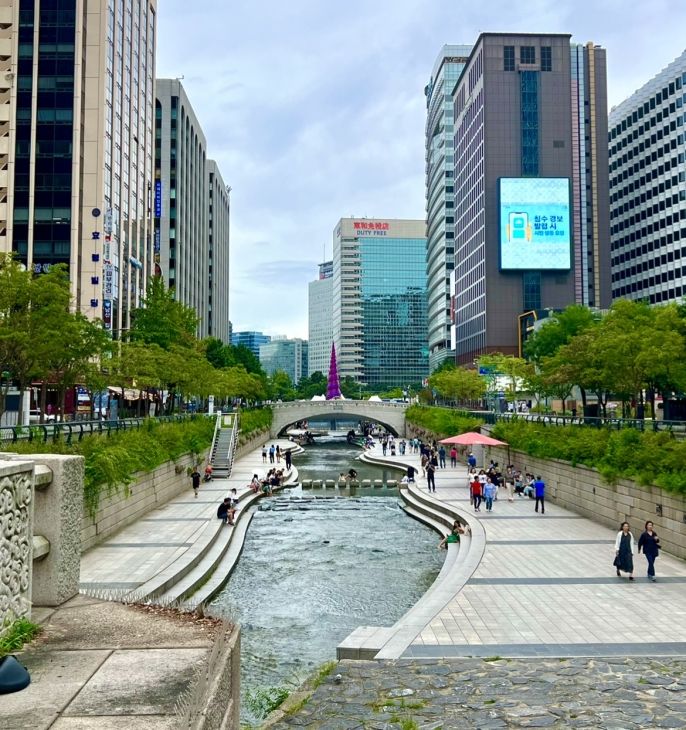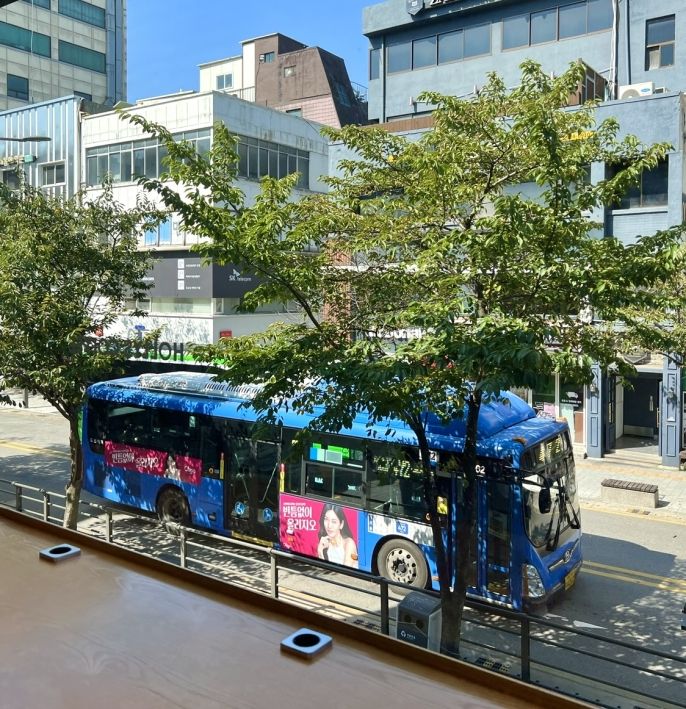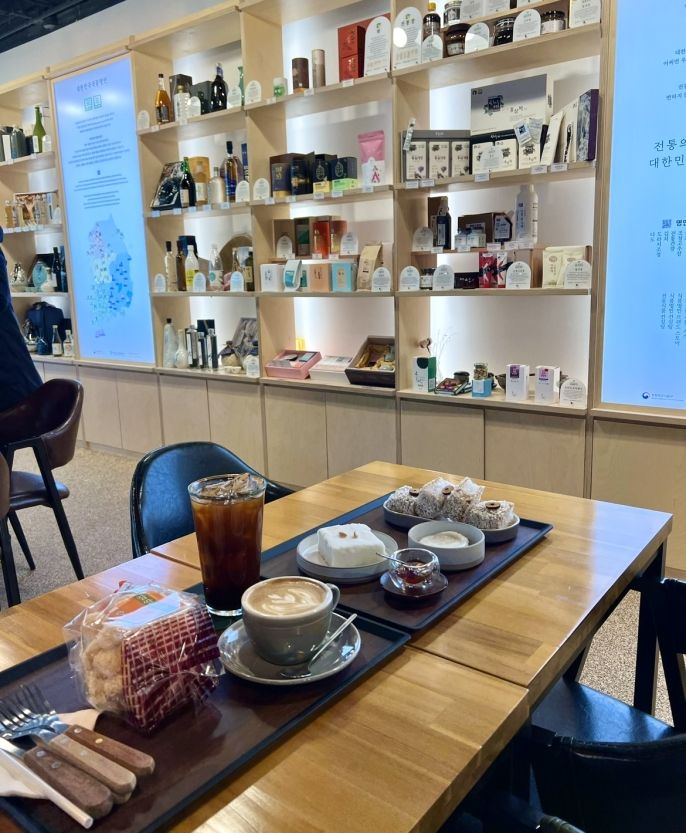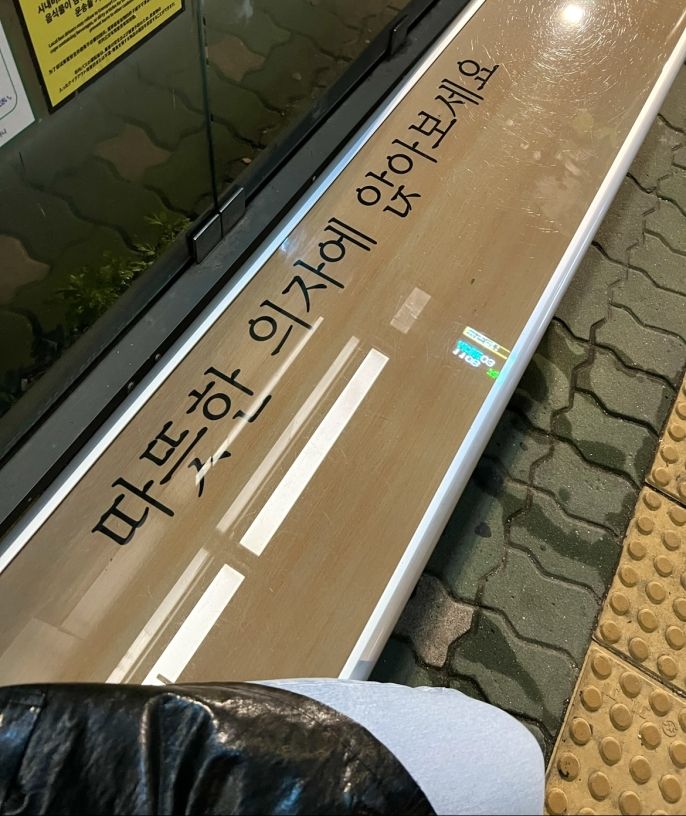What I Wish the Internet Had Told Me About South Korea
These days it is a lot easier to learn about Korean culture thanks to the internet, or maybe even TikTok specifically. This is largely due to the spread of Hallyu (한류) or the Korean Wave, which describes the massive worldwide growth in popularity of Korean music, food, fashion, cosmetics, dramas, and so on. Perhaps you have watched a Korean idol interview and learned that you should wear house slippers and put your shoes away in a shinbaljang (신발장), or Korean shoe closet that is at the front door. Or possibly you have watched a Korean drama and noticed that people slightly bow to other people instead of exchanging hugs or handshakes. Needless to say, there is a lot you can learn about Korean culture from the significant popularity of Hallyu in today's media, but there was still a few key things I wish I knew before coming to South Korea.
When I first got to Korea, I really wish I knew that public transportation is unbelievably silent, and more importantly I should be as well. I knew that Korean transportation tends to be more quiet but it was still more than I expected. If you are taking the bus, the subway, or the KTX train you should make sure to speak softly, or not even speak until you get off at your stop. CIEE had set up a group of us students to explore Seoul by bus and subway one day, and as our American group was doing that we got a little too loud trying to figure out where we are on the bus and a Korean woman told us “too loud” in English, so please learn from my mistake and stay more quiet than you think you need to be! As foreigners we tend to have a higher tolerance for being loud, but it is considered slightly rude in Korean culture so as a rule of thumb just wait to get on the phone or talk until after you get off at your stop.
Moving along, I also wish I knew that if someone tells you to go to the hospital, that doesn’t have the same connotations it does in America. Because Korea has an amazing national healthcare system there are “hospitals” everywhere but I would compare these to urgent care in the United States and not a large St. Vincent style hospital. Korean hospitals operate almost exactly like an urgent care except the cost is about 17,000 won or $13.15 for the whole visit. When I had bronchitis I only ended up paying $25.50 for seeing the doctor, with no appointment, and that included the cost for my antibiotic medication. I was speechless by just how cheap and helpful the system is, so if you are sick you can either go to the pharmacy or hospital. Both of these are everywhere, fast, and incredibly affordable.
Next I was shocked by how careful one has to be on the sidewalks and around the roads of Seoul. Korean dramas may be onto something when they show the love interest getting hit by a trash truck, because they are everywhere and quite fast. Generally, between the super fast and intent delivery drivers and the high volume of vehicles on the roads of Seoul, you have to make sure to look both ways. It is such a notable experience that I was surprised I hadn’t heard anything about staying careful on the roads with the articles I read on living in South Korea before coming abroad.
Lastly, I was truly shocked by the difference between American and Korean gyms. I was used to American gyms which have a ton of different weight lifting machines for each muscle, so when I got to the gyms here I was surprised. Gyms are definitely geared towards the male audience more, as there are very few leg machines that weight lifting women would be used to using like myself. Korean women tend to exercise with Pilates or to just run but I was fully blindsided by the difference. Because of this I even had to redo my weight training routine entirely to using mostly free weights from the lack of leg machines in Korea.
The internet is a great resource but it is not the full picture so I hope these little bits of cultural information are helpful on your journey to better understand and integrate in Korean culture. There is still a lot of great information about Korean culture online but it tends to focus on the culture generally, so I hope my first-hand experience can paint a more well-rounded picture of life in South Korea.
Related Posts

Soul Searching in Seoul: Everything I Learned and What I Wish I Knew
Before I start crafting my “study abroad changed me” answers for friends and family, here are the practical things I wish I’d known. The things that would’ve saved me time... keep reading

A Seoul Escape to Bukhansan
Get out of the hustle and bustle of Seoul and head to the peak of Bukhansan!
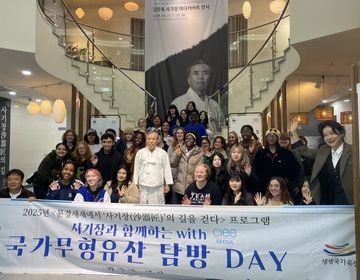
My Time in South Korea Attending Yonsei University: A Life-Changing Chapter
By: Zahrraa Al-Salman Studying abroad had always been a dream of mine—an opportunity to step outside of my comfort zone, immerse myself in a new culture, and deepen my understanding... keep reading
